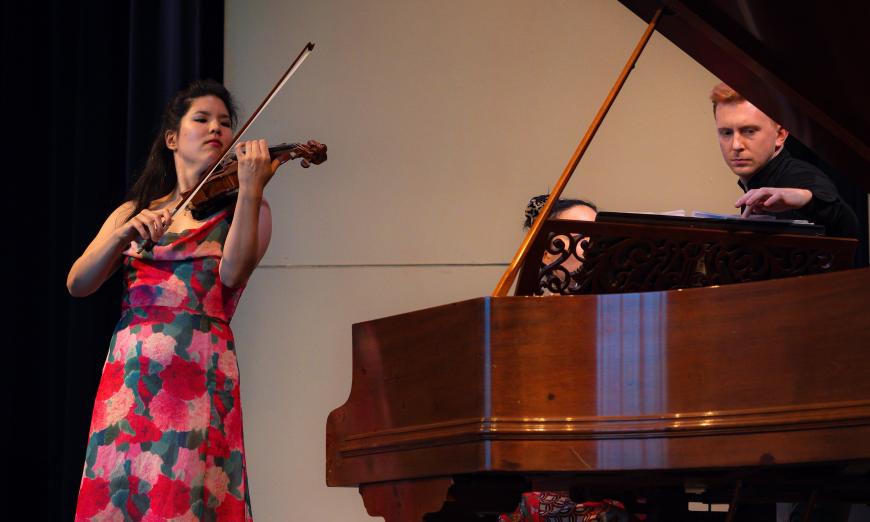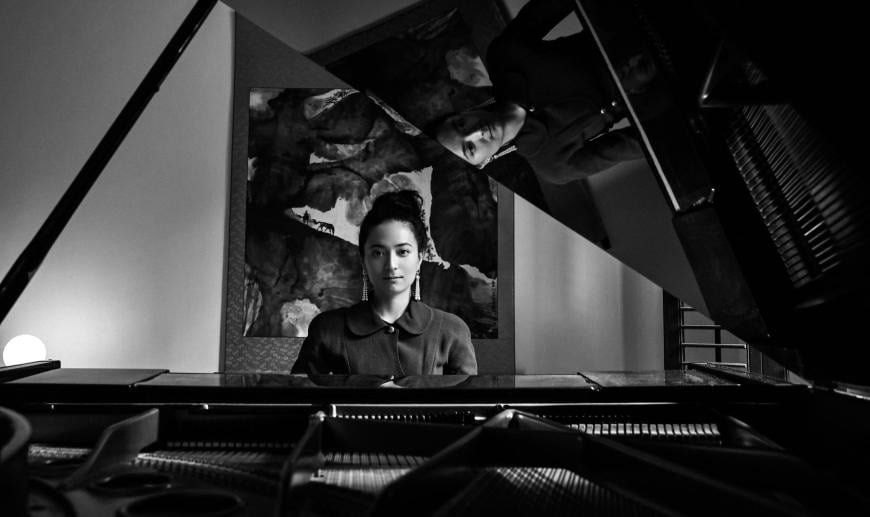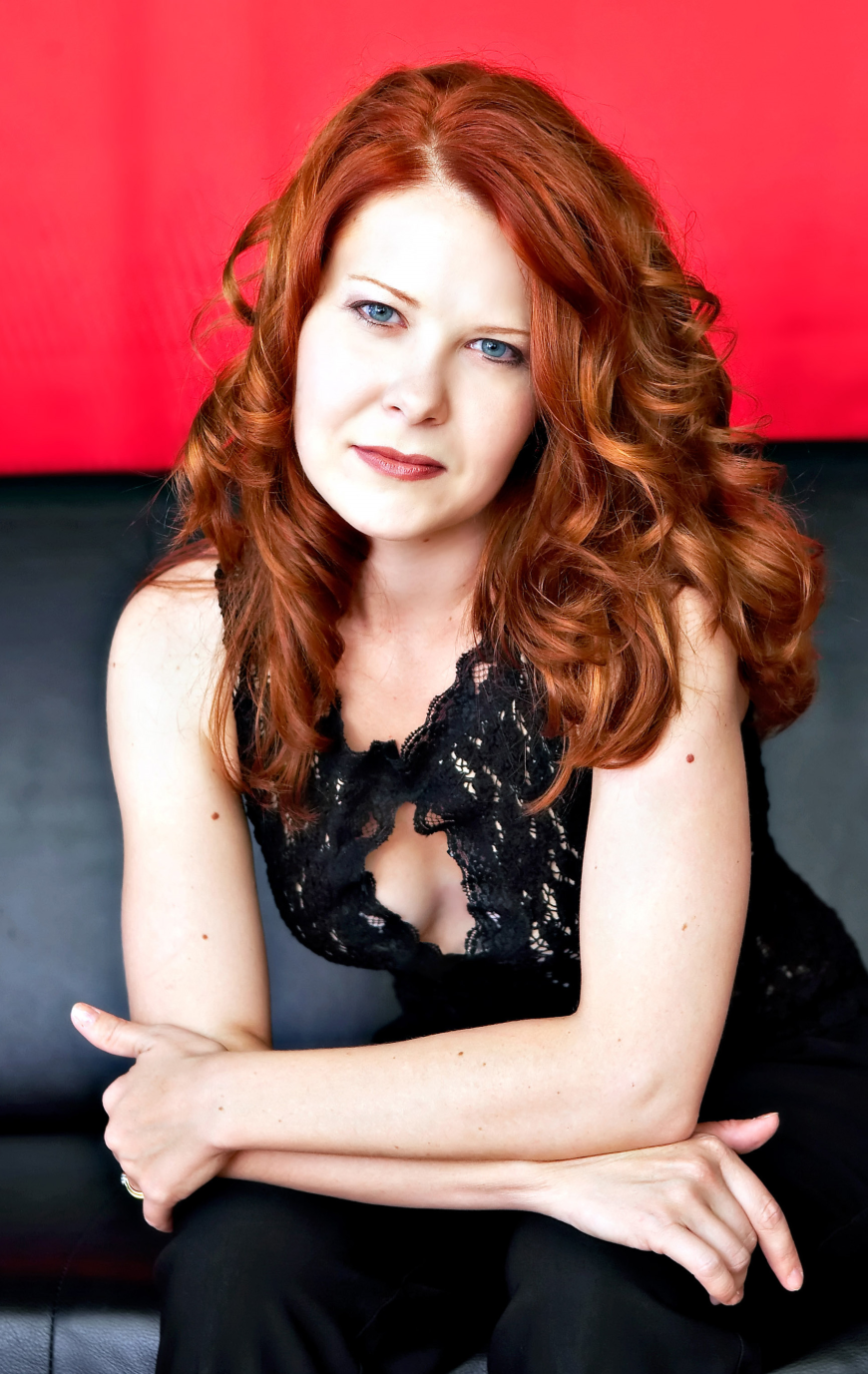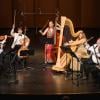
Sonoma’s Valley of the Moon Music Festival celebrated its 10th season this year. Past festivals have been largely devoted to late 18th- and 19th-century European chamber music, focusing on themes such as Beethoven, “The Natural World,” “Women of Power and Influence,” and more, all performed on period instruments.
This season’s festival, “Music Across the Americas,” featured, but was not limited to, composers from the Americas. One program, for instance, included works by Haydn, Mozart, and Luigi Boccherini, plus a string quartet by the Peruvian-born Pedro Ximénez Abril Tirado (1784–1856).
The concert on Saturday, July 27 was called “The Americas” and included a veritable cornucopia of works, all of which received excellent performances. Some were excerpts from larger compositions and almost all left this reviewer eager for more.
The exception would be the piano pieces and songs by Edward MacDowell (1860–1908). The performances, by pianist Audrey Vardanega and soprano Nikki Einfeld, were flawless and sincere, but there’s only so much you can do with skillfully composed salon music.

Vardanega played selections from MacDowell’s Woodland Sketches, Op. 51, and Sea Pieces, Op. 55, with a lyrical and richly colored touch. “From a Wandering Iceberg” was certainly atmospheric — but with haunted-house vibes rather than the deep chill of an iceberg. The lovely rippling of “By a Meadow Brook” had some sly wit. Much better was the first of Venezuelan pianist, composer, and opera singer Teresa Carreño’s Deux Esquisses Italiennes, a gentle barcarolle that traversed some interesting harmonic territory.
Einfeld is a superb artist, a mainstay of Bay Area opera and new music, and she brought all of her intelligence and musicianship to bear on MacDowell’s charming but slight settings of two rather sentimental poems by the American writer Margaret Deland.
More importantly, Einfeld sang five songs from Aaron Copland’s Twelve Poems of Emily Dickinson — superb settings of superb poems — with collaborative pianist Eric Zivian. (Zivian and cellist Tanya Tomkins are the festival’s music and artistic directors.) Copland weaves the piano part around, through, and under beautiful vocal lines, highlighting the texts with utter mastery. The piano is often austere, putting the singer to the fore. In “Sleep is supposed to be,” there’s a tremendous climax in the fourth verse.

In these songs, you were able to hear everything Einfeld can do with an art song: bringing infinite colors, exquisitely precise articulation, clear enunciation, and subtle rhythm nuance, all of it highlighting the emotional content of the poems. Zivian’s playing had all the same subtleties, brought out by the beautiful clarity of tone and ease of articulation of the 1895 Chickering grand piano used throughout the concert.
Zivian and Einfeld also teamed up for a searing account of Mexican composer Silvestre Revueltas’s “Canto de una muchacha negra,” a Spanish setting of Langston Hughes’s poem “Song for a Dark Girl,” in which a young Black woman sings of her lover’s lynching in the Southern United States.
Zivian’s two solos were Heitor Villa-Lobos’s jazzy Saudades das Selvas Brasileiras No. 1 and Louis Moreau Gottschalk’s Le Banjo, both played with swaggering panache.
The concert opened with a beautiful and nuanced account of Copland’s Sonata for Violin and Piano, played in full by violinist Keir GoGwilt and pianist Allegra Chapman. GoGwilt, playing what sounded like a gut-strung instrument, applied vibrato not as a constant but to support the shape of his phrasing. Like Zivian, Chapman took full advantage of the crisp articulation and beautiful sound of the Chickering, pedaling lightly. She also played two movements of Manuel Ponce’s Cuatro Danzas Mexicanas (Four Mexican dances).
Of all the composers on the program, it was Rebecca Clarke who had the most tenuous claim to being of the Americas. Born, raised, and trained in England, Clarke lived in the United States for a few years in her 30s, then lived there from the outbreak of World War II to her death in 1979. Her Viola Sonata is among the great works for that instrument, and it’s true that she wrote it while living in the U.S.
Clarke drew on multiple traditions for this piece. The opening viola recitative might almost be Arabic or North African. It’s followed by passages that could come from the Renaissance and more that draw on Claude Debussy. Overall, the first movement is impetuous (and marked Impetuoso) and almost improvisatory in feeling. Alas, the concert included only this movement, played with glorious mahogany tone by Andrew Gonzalez, with Christopher Goodpasture on piano.
The concert closed with two deliciously lively movements from William Grant Still’s Danzas de Panama for string quartet, performed by Gonzalez, violinists Giancarlo Latta and Rachell Ellen Wong, and cellist Coleman Itzkoff.




